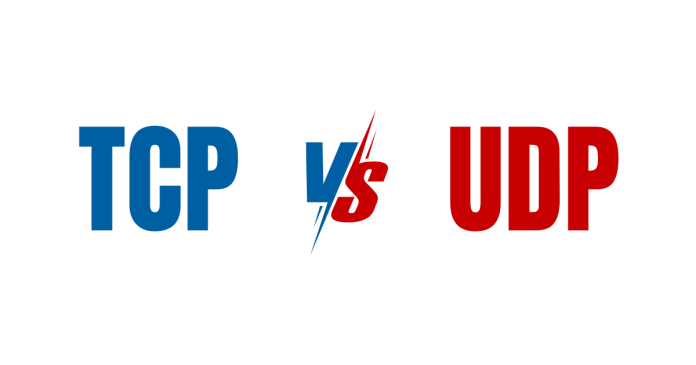TCP (Transmission Control Protocol) and UDP (User Datagram Protocol) are two fundamental communication protocols in computer networking. Both operate at the transport layer of the OSI model and facilitate data transfer over the internet, but they differ significantly in how they function.
1. What is TCP?
TCP is a connection-oriented protocol that ensures reliable data transfer between devices.
- Features:
- Establishes a connection before data transfer.
- Ensures all packets are delivered and in the correct order.
- Resends lost or corrupted packets.
- Suitable for applications requiring reliability (e.g., web browsing, email, file transfers).
- Example Use Cases:
- HTTP/HTTPS (web pages)
- FTP (file transfers)
- SMTP (email).
2. What is UDP?
UDP is a connectionless protocol that focuses on fast data transmission.
- Features:
- No connection establishment; data is sent directly.
- Does not guarantee delivery, order, or error correction.
- Lightweight and faster than TCP.
- Suitable for real-time applications where speed is crucial (e.g., live streaming, gaming).
- Example Use Cases:
- Video conferencing (e.g., Zoom, Skype)
- Online gaming
- DNS (Domain Name System).
3. Key Differences Between TCP and UDP
| Feature | TCP | UDP |
|---|---|---|
| Connection Type | Connection-oriented | Connectionless |
| Reliability | Reliable (guarantees delivery) | Unreliable (no delivery guarantee) |
| Speed | Slower due to reliability mechanisms | Faster due to minimal overhead |
| Error Handling | Retransmits lost packets | No retransmission of lost packets |
| Order of Packets | Maintains order | Order not maintained |
| Overhead | Higher (due to acknowledgments) | Lower (simpler structure) |
| Use Cases | Web browsing, email, file transfers | Streaming, gaming, DNS queries |
4. When to Use TCP or UDP
- Choose TCP if:
- You need reliable communication (e.g., sending files, loading web pages).
- The application cannot tolerate data loss or corruption.
- Choose UDP if:
- Speed is more important than reliability (e.g., live streaming, gaming).
- Some data loss is acceptable for real-time performance.
Conclusion
TCP and UDP serve different purposes based on the needs of an application. While TCP ensures reliability and data integrity, UDP prioritizes speed and efficiency. Understanding their differences helps in choosing the right protocol for specific networking tasks.



